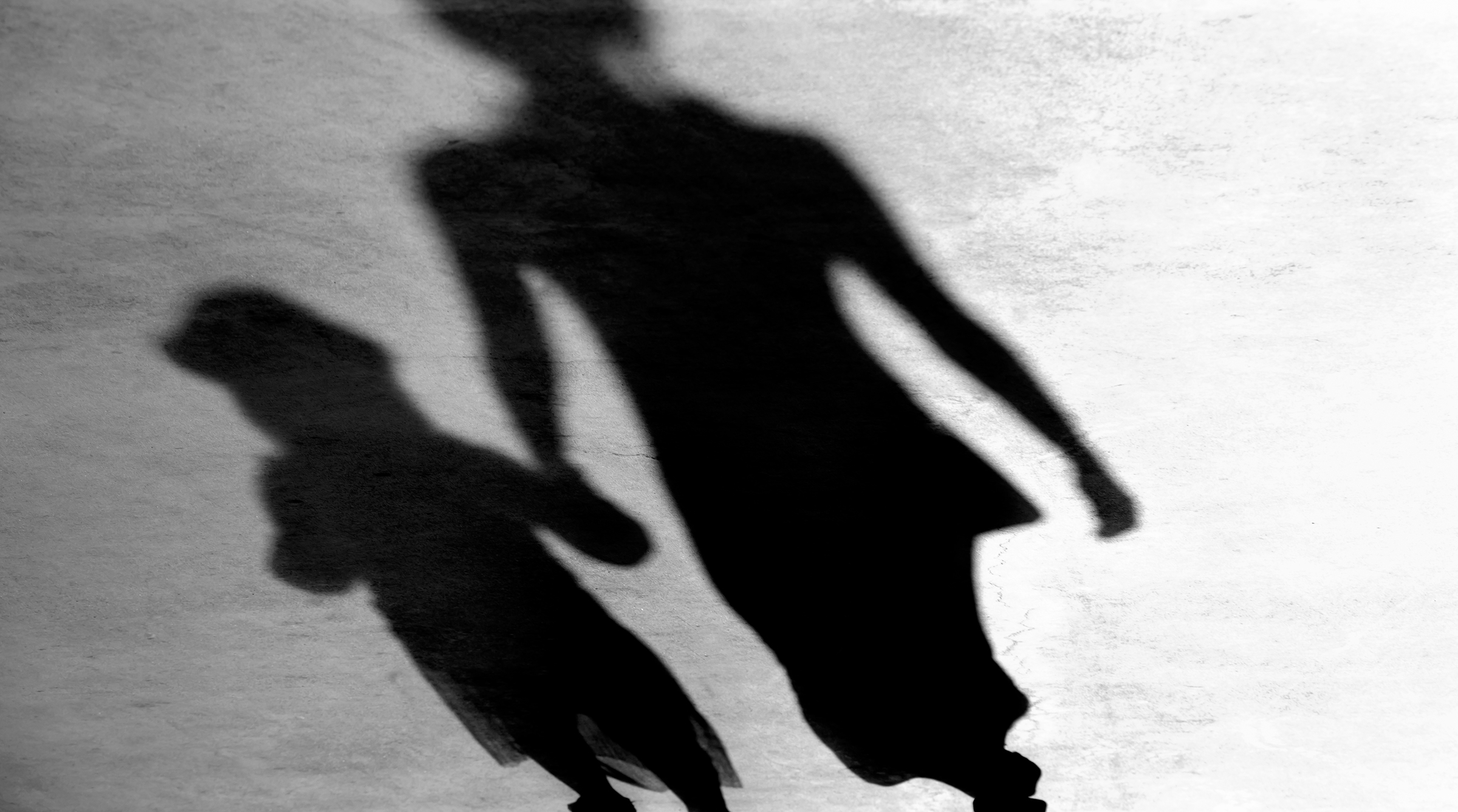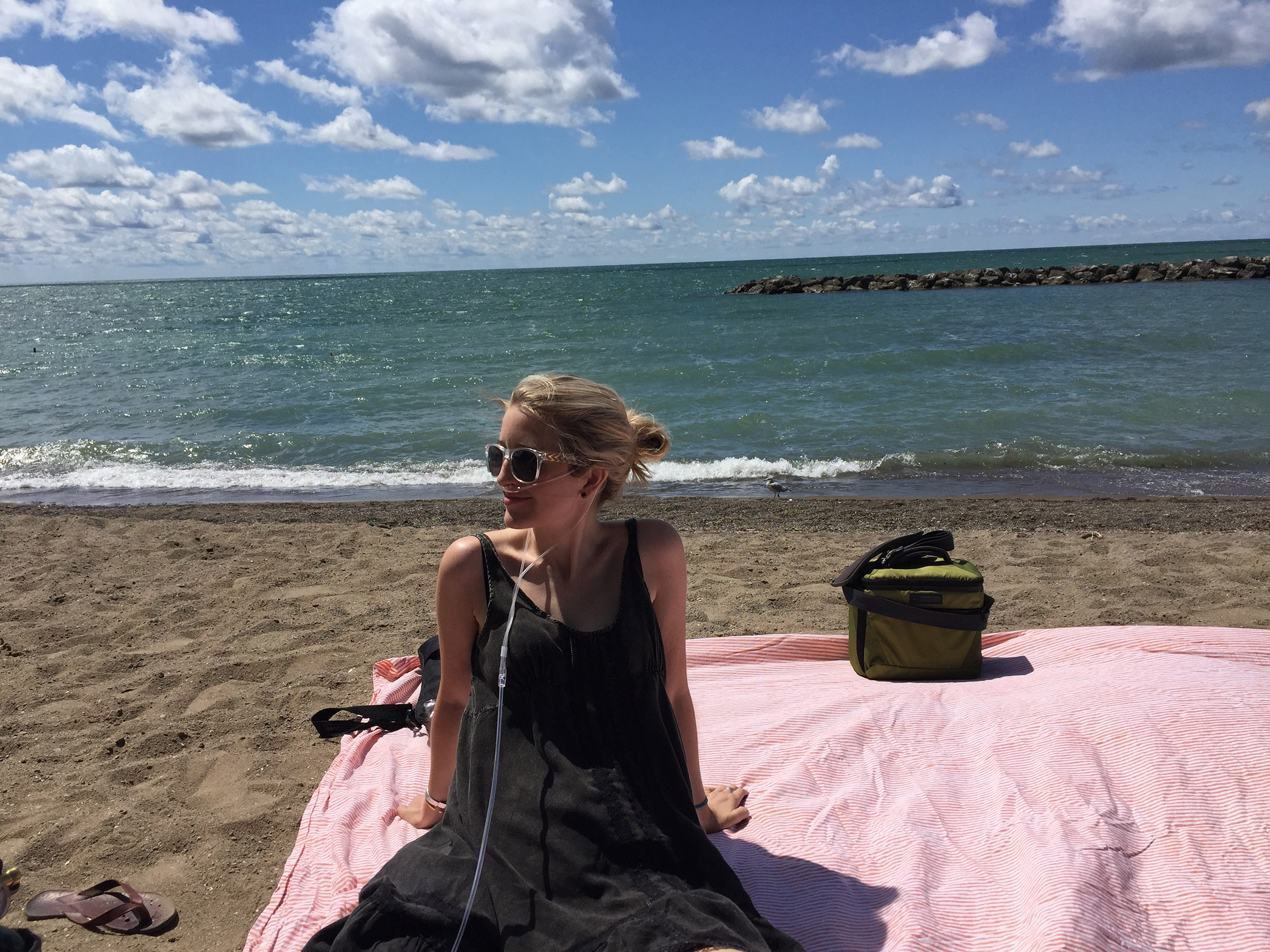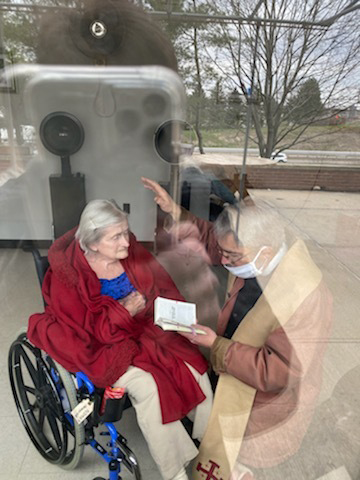
Sometimes when my daughter Caitlin was growing up, images and ideas would sneak into my head before I could squeeze them away. What a headstone might say. The Freddie Mercury music that would accompany a heartbreakingly beautiful video of her life at a memorial service.
When she reached adulthood and her quality of life began to deteriorate from the disease she was born with—cystic fibrosis—and it became clear she would need a lung transplant to survive, I laser-focused on the positive: a successful outcome that would allow her to return to independent living.
That wasn’t ignorance or wishful thinking. People do survive lung transplants and go on to live fulfilling lives. Also, a transplant center won’t accept you as a candidate unless they believe that you have a decent chance at survival.
But part of me knew, of course it did, that I could outlive my daughter. An organ transplant is risky business, and besides, there are all the other everyday threats facing humans: routine accidents, acquired diseases, viruses. I had seen one brother-in-law felled at age 29, overnight, from a brain aneurysm, and my father killed by heart disease at 59. I knew that we are all temporary, that the arc of a human life, even a long one, is a blink in time.
Why then, did I not gather up more of Caitlin while I could? Why did I not make more recordings of her voice, take videos of her talking, why did I not ask her every question I might ever want an answer to?
Read More: Why You Need to Make a ‘When I Die’ File—Before It’s Too Late
Because I knew her antennae would rise. I would upset her. Why are you doing this? You think I’m not going to make it, don’t you?
After her wait for a transplant spiraled from hope to tragedy, I scrambled to find images for that heartbreakingly beautiful video we did create, but it was hard. For every video snippet I had of her talking and being, I had a thousand reels of our adorable Yorkshire terrier pup doing… not much.
Now I realize I could have recorded a legacy interview with her, without upsetting her. I learned such techniques when I trained as a certified end-of-life doula through a program at the University of Vermont’s Larner College of Medicine. An end-of-life doula provides support and comfort to humans as they approach death. Like a birth doula, only on the other side of the arc.

Legacy work was my favorite part of the training, the part I knew would be my focus when it came time to volunteer for hospice work. A helpful template, part of our training materials, came via Wendy Griffith, L.C.S.W. in Houston, who writes: Legacy work isn’t about death and dying, it’s about life and living. It’s about making connections and sharing precious moments with the special people in your life. Leaving a legacy gives your loved ones something tangible to hold on to, something that can provide health and comfort year after year. Legacy work provides a unique opportunity to reflect on your life and process through events and people who shaped it, while still planning for the future. It can be a powerful coping tool not only for you, but the people around you.
I realized that I could have used the right words to conduct a legacy interview with Caitlin. Hey bud, I might have said. You know how much I love oral histories and how valuable they’ve been to me for my book research. After transplant, I was thinking I might start a new volunteering project, helping people record their stories. You’re one of the most interesting people I know. Will you help me practice?
She would have loved talking about herself. Don’t we all? I would have hours of her ruminating on what’s meaningful. I would have all her gestures, her ways of laughing, of speaking with passion and conviction. All of it would be recorded.
Which of our family traditions do you cherish most? What have you liked best about your life so far? What’s the most difficult thing that has happened to you? What was your happiest moment? Do you have a life philosophy?
I completed the certification in late 2019 with the intent to begin hospice training in early 2020. I also had it in the back of my mind to conduct a legacy interview with my mother in Maine. She had the kind of memory I can only dream of having, and had been a helpful source of 1930s and 40s-era details for me when I wrote a novel set during that time period. I would record our interview, transcribe it, and gift copies to family members. I’ve learned, from immersing myself in long pages of text messages I had with my daughter, that there is something precious and immediate about reading transcribed conversations. My mother’s words truly would be able to “live on” for her descendants.
I had time. She was 83 but chugging along, living in an in-law apartment at my sister’s house, with no overt threats to her health.
But in January my sister wrote to say that Mom was deteriorating––she might have had a mild stroke, she wasn’t sure, there was an MRI scheduled, but regardless, she was failing by the day and it was clear she was going to need to go into care, and that would take a little time to sort out and in the meantime, she, Kate, had to go out of town for a week and could I come up and help?
Those days and nights involved boring routines and a lot of physical effort. Mom could barely move on her walker. She couldn’t get off the toilet or into her chair. She was a small woman, but dead weight is heavy weight. One night she fell and I wrenched my back lifting her up to her feet. Getting her into bed was a struggle of a routine that involved helping her to sit, wrestling her backwards, lifting her legs and then hefting her onto the mattress.
My last night there, before Kate came home, it occurred to me that I should do the legacy interview. I knew I would have to bring up the idea in the right way, now that she was clearly declining. With the elderly or sick, the idea of doing a life review can be alarming, so it’s wise to figure out the best way to broach the conversation, depending on the individual. With my mother, I might have said, We’ve always loved your stories. Want to tell a few? She would have loved it. She loved to talk.
But it had been a long day. I wanted to go upstairs and have dinner and a glass of wine, check my email, and read my book. That night as I got into bed I had a twinge of regret, but told myself that once she was in the care center, interviewing her would be the perfect activity for a visit, an excellent way to pass a few hours.
We did not yet know that it wasn’t a mild stroke she’d had but cancer, and that it was in her brain. We didn’t know that once she was in the care center, COVID-19 would almost immediately close it down to visitors.
Read More: I Thought I’d Get to See My Mother Again. Then the Pandemic Hit
I sent a pretty notebook with a pen and list of questions, but when we Zoomed and I asked her if she’d been able to do any of it, she gazed at me with great fatigue and shook her head. Oh, Maryanne, I can’t.

For weeks the family visited outside, waving through windows and watching while a priest administered last rites. A few of us were allowed in at the end but by then she was uncommunicative and again, as with Caitlin, I berated myself as I picked through scraps of memory and old messages to write an obituary: She grew up in Uxbridge, Massachusetts, and enjoyed entertaining her children, when they were young, with detailed stories of the olden days: ice deliveries on hot summer afternoons, the soda fountain at her father’s drugstore, bus lines that could take you all the way to Boston and Providence, and a phone number that was “422, ring 2.”
Those olden days? They’re a minute ago. Seize the minute while you can.
More Must-Reads from TIME
- Why Biden Dropped Out
- Ukraine’s Plan to Survive Trump
- The Rise of a New Kind of Parenting Guru
- The Chaos and Commotion of the RNC in Photos
- Why We All Have a Stake in Twisters’ Success
- 8 Eating Habits That Actually Improve Your Sleep
- Welcome to the Noah Lyles Olympics
- Get Our Paris Olympics Newsletter in Your Inbox
Contact us at letters@time.com